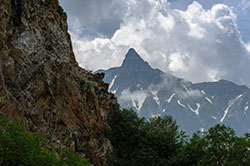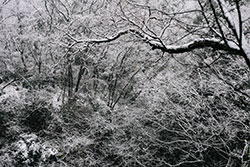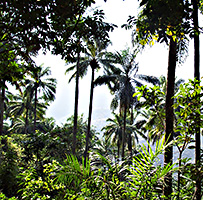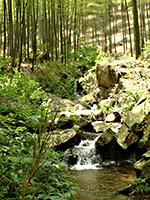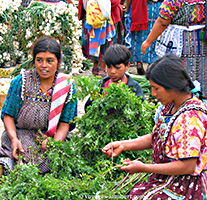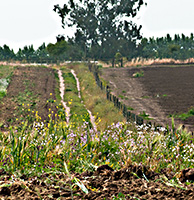A remote mountain village in Japan – in the 19th century
'Narayama is waiting for us'
“My dear grandmother, don't leave us,” the peasant says, “don't abandon us.” His stepmother agrees with him. “Kesakichi is right, mother, take your time, there's no hurry.” Grandmother Orin – a petite, healthy, silver-haired woman – smiles. “Children, I have turned seventy years old now, you know that. Slowly it is becoming time for me to climb the mountain, to seek out our god Narayama. My mother did it, my mother-in-law too, and now it is my turn. Narayama is waiting for us, he is happy to see us. This winter I will go away. Don't worry about it, that's the way it’s been as long as anyone can remember.”
Yes, that's the way of things since time immemorial. But each time it is a tragedy. For Kesakichi – a serious peasant in his mid-twenties, with long black hair brushed back and twisted into a bun at his neck – it will be terrible to miss his beloved granny. But there's no other choice. Life is hard here in the mountains, the harvests are meagre, and this year there are two more mouths to feed: his stepmother Tamayan who has taken the place of his mother who died years ago, and his own wife Matsuyan. Besides that, his wife is pregnant, and here it is considered shameful to see your great-grandchild. The older people have to make way for the younger ones. That's the law of this region, that's your sacred obligation.
“Do you know what's the most beautiful thing?” grandma Orin continues. “Sometimes it suddenly starts snowing, and everything turns white. That's how our beloved god Narayama welcomes us. Then, everywhere it becomes shining white.”
_______________________
Source
The movie The ballad of Narayama (1983) from the Japanese director Shohei Imamura beautifully frames both the harsh peasant life and the natural setting.
Go to:
= the next page: Praise poets – South African villages – nineteenth century , story 17.
= the Table of contents, story 16.


